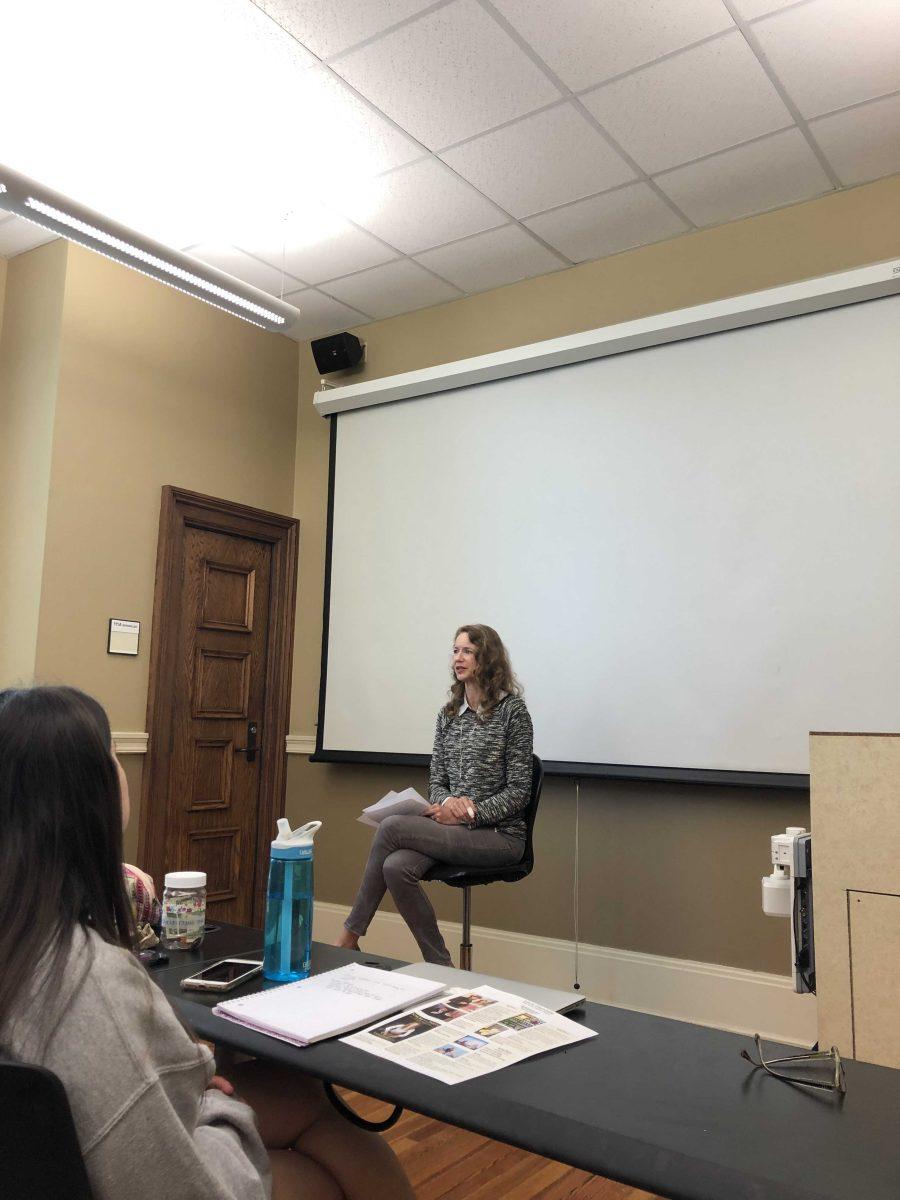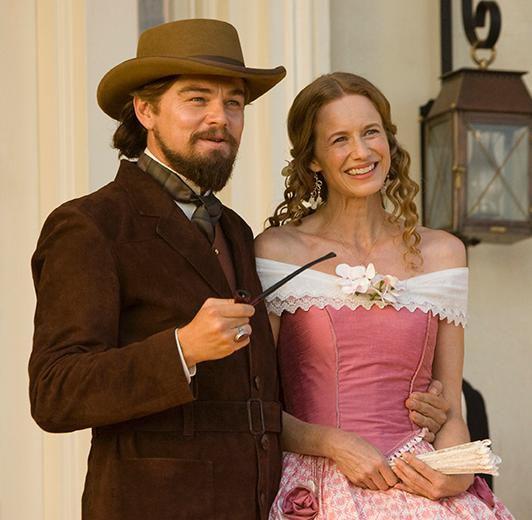California may be a ways away, but the University got a little taste of Hollywood last week.
On March 28, actress, author and blogger Laura Cayouette paid a visit to a few of the Manship School of Mass Communication’s classes. She delivered some tips on interviewing and writing, as well as the importance of social media in building an online image.
Cayouette may not be a journalist, but her experience in different jobs, especially acting, make her advice applicable in any career.
The now-actor actually began as a creative writing major, earning a master’s degree at the University of South Alabama before deciding to pursue acting at 25. Since then, she has appeared in over 60 titles, and has become a favorite of world-renowned filmmaker Quentin Tarantino.
She has also been able to make use of her creative writing degree, penning a series of mystery novels centering around Charlotte Reade, an actress who becomes involved in a search for a lost mother right in the heart of New Orleans. In addition, she has also written a standalone novel, “Lemonade Farm,” as well as a book of advice for actors.
As someone with enough experience and knowledge to publish a full book of advice, it’s no surprise that Cayouette had some wise words to offer students right here in Baton Rouge.
The actress stopped by Professor Doug Draper’s MC 4002 class to bestow some of what she’s learned on a lucky group of students. MC 4002, or Public Relations and Social Media Strategy, is all about creating an image, something Cayouette is an expert in.
To a self-published author and an actress, image is everything. Cayouette emphasized the importance of not being too political, posting regularly and finding a community within each platform that fits in hashtags and mutual followers.
“Social media is actually my No. 1 way [to reach an audience],” she said. “And each social media has a different thing that it’s good for.”
From there, she spoke a bit about writing, and how she goes from a blank page to a full novel. The most important part? Planning.
Her first step is to write down her idea, and why she wants to tell the story. This way, the importance won’t get muddy with time, and the inspiration and message stays clear. Next comes the outline, so intricate storylines and concepts stay straight. Finally, a schedule, so the novel doesn’t get tossed to the side in order to focus on other things.
Though this structure seems rather strictly regimented, she believes it allows her to do her best work. She can focus on the beauty and flow of her writing with the clarity of a structure instead of surprising herself with what comes next.
“It’s essential,” Cayouette said. “To me, asking why you need an outline is like asking why a body needs a skeleton.”
This strategy of pre-planning is actually borrowed from Cayouette’s experience in Hollywood. It’s commonly known in the industry that pre-production is the secret to production, but it is seldom applied so directly to writing. This combination of different perspectives is what makes Cayouette’s advice so useful.
She shared a lot of other anecdotes and strategies for making it in whatever field you would want to end up in, but all of it came back to the same three points: be prepared, be motivated and be unforgettable.
For a more extensive collection of Cayouette’s advice about the acting world and beyond, pick up a copy of “Know Small Parts: An Actor’s Guide to Turning Minutes into Moments and Moments into a Career.”









